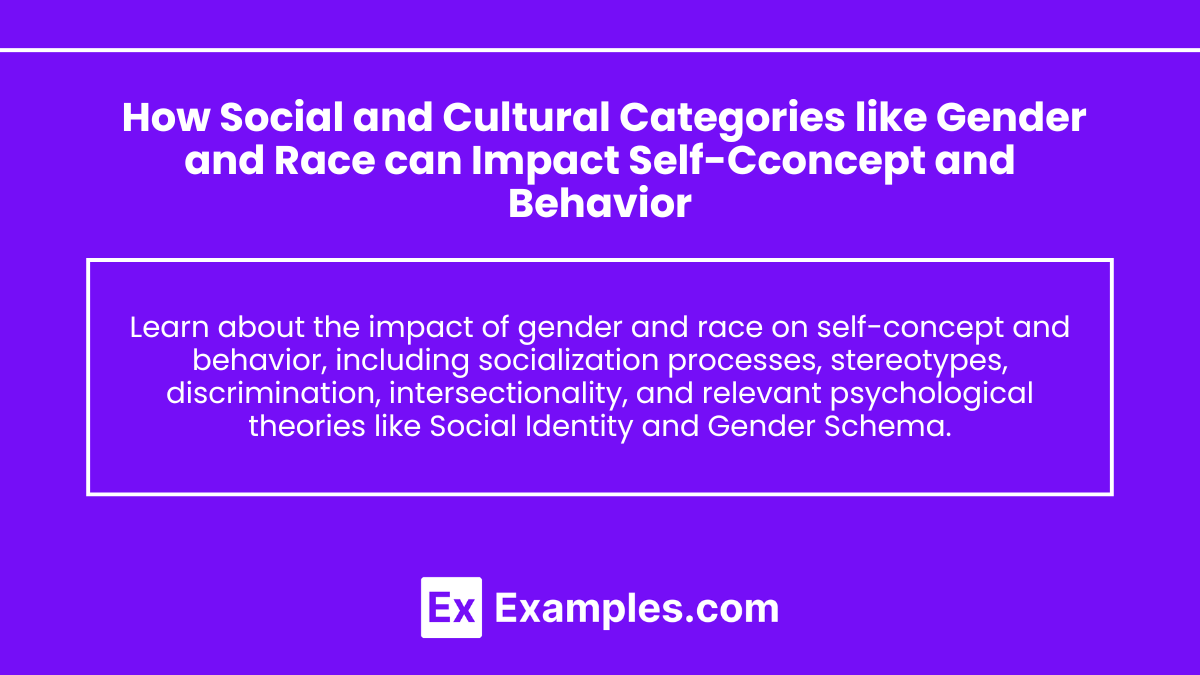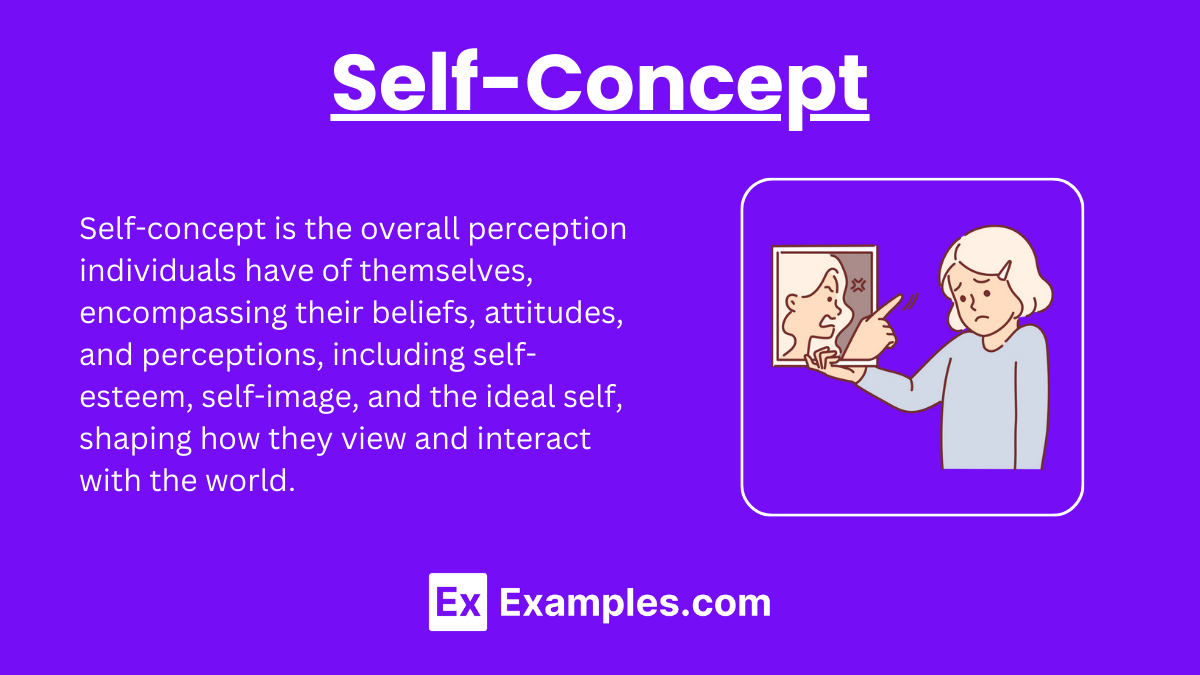Understanding how social and cultural categories like gender and race impact self-concept and behavior is essential for AP Psychology. These categories shape our identities through family, peer, and media influences. Gender roles and racial identities affect self-esteem and actions, often reinforced by societal stereotypes and discrimination. Theoretical perspectives such as Social Identity Theory and Gender Schema Theory help explain these influences. Analyzing these impacts is crucial for grasping the complex interplay between individual psychology and social dynamics.
Learning Objectives
learn how gender and race shape self-concept and behavior. Understand the role of socialization through family, peers, and media in developing gender and racial identities. Study the effects of stereotypes, discrimination, and intersectionality on self-esteem and actions. Explore theoretical perspectives like Social Identity Theory and Gender Schema Theory to explain these impacts. Grasp key terms and concepts to analyze how social and cultural categories influence individual psychology and societal interactions.
Self-Concept
Self-concept refers to the sum total of a person's beliefs and attitudes about themselves. It includes self-esteem, self-image, and the ideal self.
Components of Self-Concept
Self-Esteem: How we value ourselves.
Self-Image: How we see ourselves.
Ideal Self: How we wish to be.
Impact of Gender on Self-Concept and Behavior
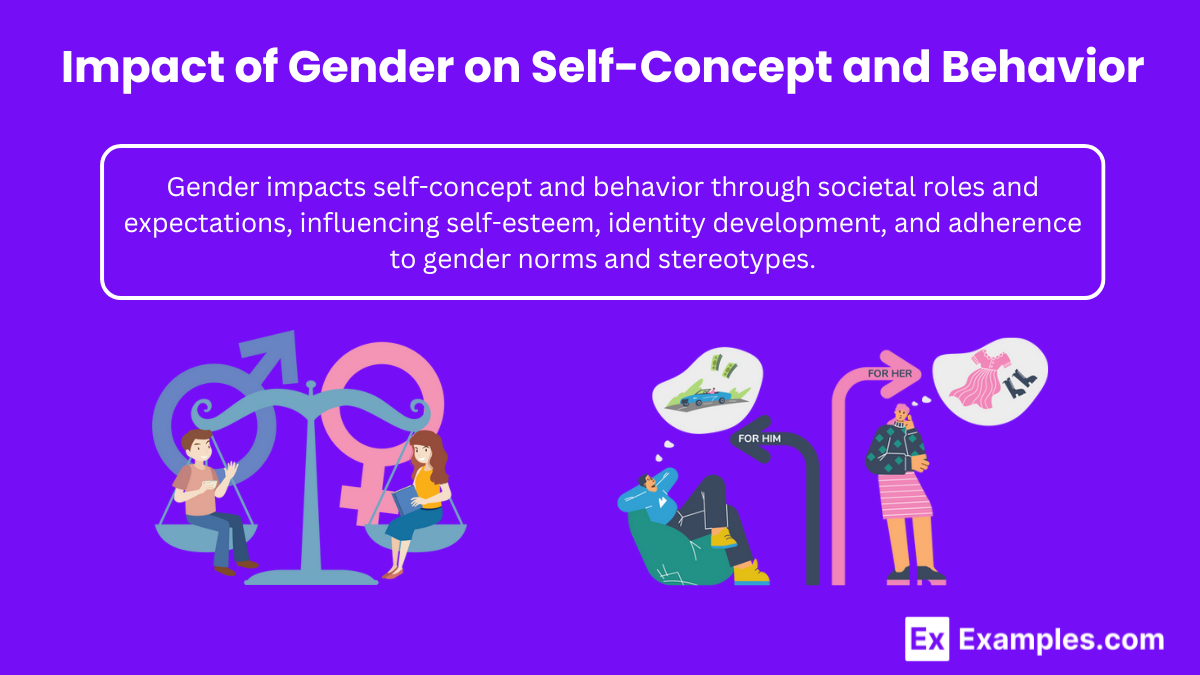
Gender Identity and Roles
Gender Identity: A personal sense of one's own gender, which may or may not align with their biological sex.
Gender Roles: Societal expectations about how individuals should behave based on their gender.
Socialization and Gender
Family Influence: Parents often encourage gender-typed activities (e.g., dolls for girls, trucks for boys).
School and Peer Influence: Peer groups reinforce gender norms through play and social interactions.
Media Influence: Media portrayals often reinforce traditional gender roles, impacting self-concept and behavior.
Behavioral Impacts
Gender Stereotypes: These can limit opportunities and affect self-esteem.
Gender Schemas: Cognitive frameworks that help individuals process information about gender roles and influence behavior accordingly.
Gender Dysphoria: Distress experienced by some individuals whose gender identity does not align with their biological sex, impacting self-concept and behavior.
Impact of Race on Self-Concept and Behavior
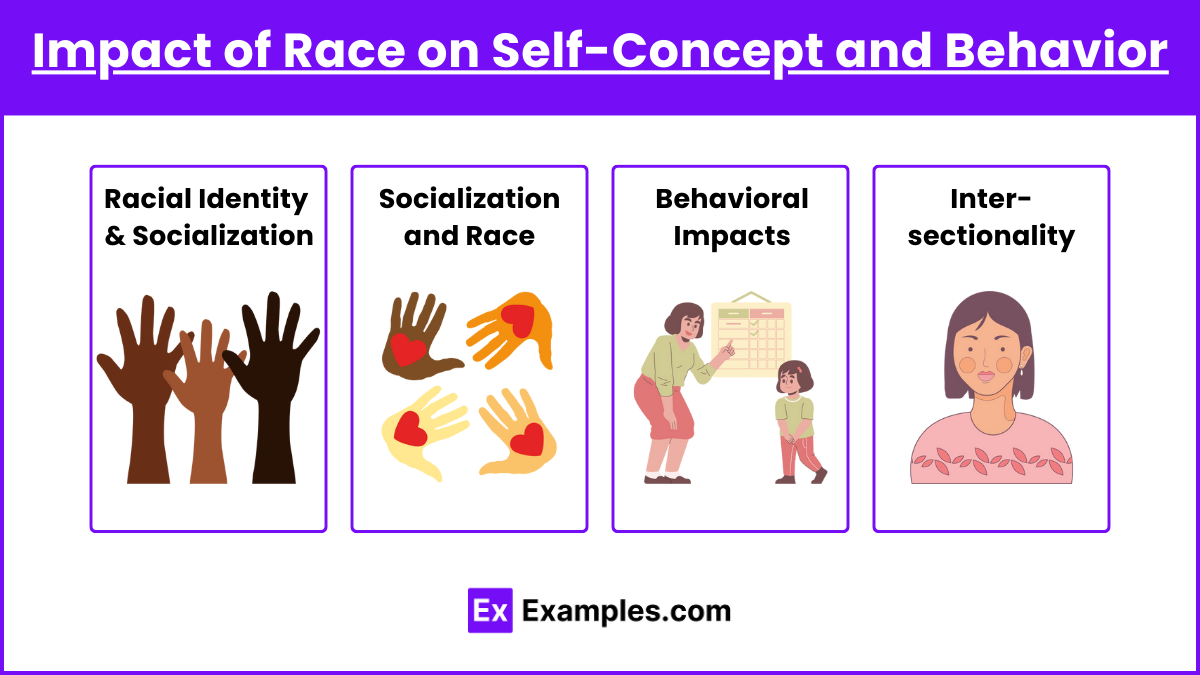
Racial Identity and Socialization
Racial Identity: A sense of belonging to a racial group and the importance of this identity to one's self-concept.
Racial Socialization: The process through which individuals learn about their racial or ethnic background and how to navigate society's racial dynamics.
Socialization and Race
Family Influence: Families play a critical role in racial identity development through direct communication about race and modeling behaviors.
School and Peer Influence: Experiences in educational settings and peer interactions can reinforce or challenge racial identities.
Media Influence: Media representations can shape perceptions of one's racial group and influence self-concept.
Behavioral Impacts
Stereotype Threat: The fear of confirming negative stereotypes about one's group, which can negatively impact performance and behavior.
Discrimination: Experiences of racial discrimination can lead to stress, lower self-esteem, and defensive behaviors.
Cultural Resilience: Positive identification with one's racial group can foster resilience and positive self-concept.
Intersectionality
Intersectionality refers to the interconnected nature of social categorizations such as race, gender, and class, which can create overlapping and interdependent systems of discrimination or disadvantage.
Impact on Self-Concept and Behavior
Multiple Identities: Individuals navigate complex identities that can compound the effects of societal expectations and stereotypes.
Cumulative Discrimination: Experiencing multiple forms of discrimination (e.g., sexism and racism) can have a profound impact on self-concept and behavior.
Empowerment and Advocacy: Self Awareness of intersectionality can lead to greater advocacy for social justice and positive self-concept.
Theoretical Perspectives
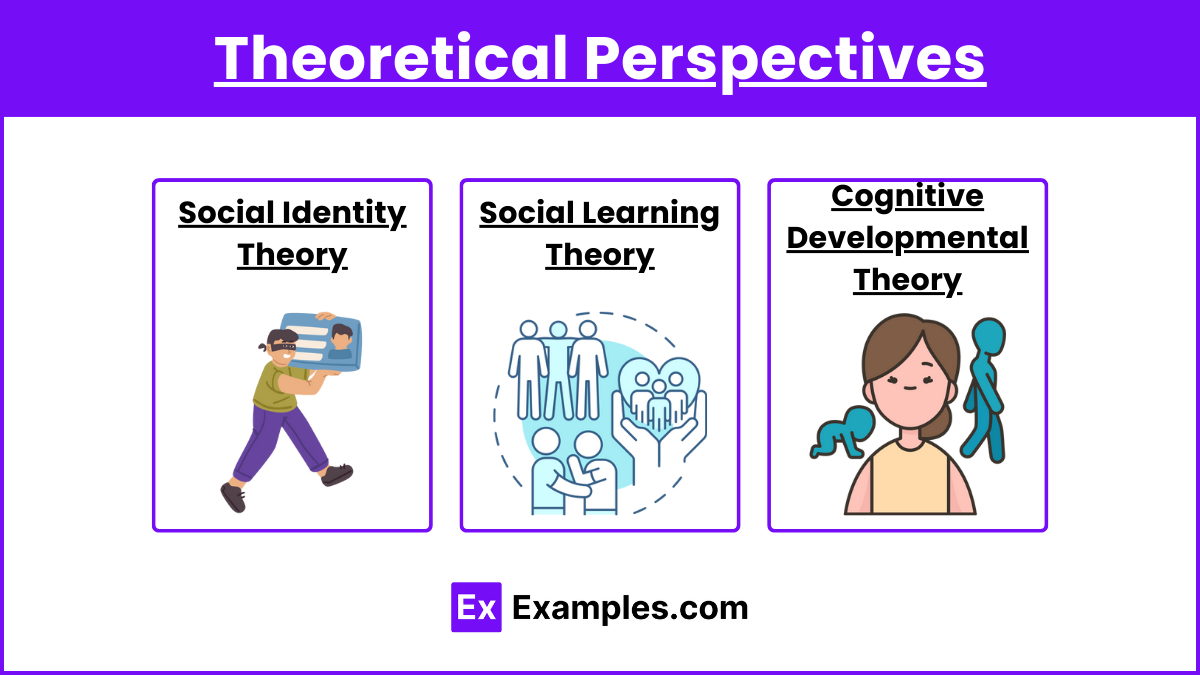
Social Identity Theory
Ingroup and Outgroup: People categorize themselves and others into groups, which can influence self-concept and behavior.
Ingroup Favoritism: Preference for one's own group can enhance self-esteem but also lead to prejudice against outgroups.
Social Learning Theory
Observation and Imitation: Individuals learn behaviors and norms by observing others, especially role models of the same gender or race.
Reinforcement: Behaviors are reinforced by rewards or punishments from the social environment.
Cognitive Developmental Theory
Gender Schema Theory: Children develop schemas for understanding gender roles, which influence their behavior and self-concept.
Ethnic Identity Development: Stages of Ethnicity identity development impact how individuals see themselves and interact with others.

